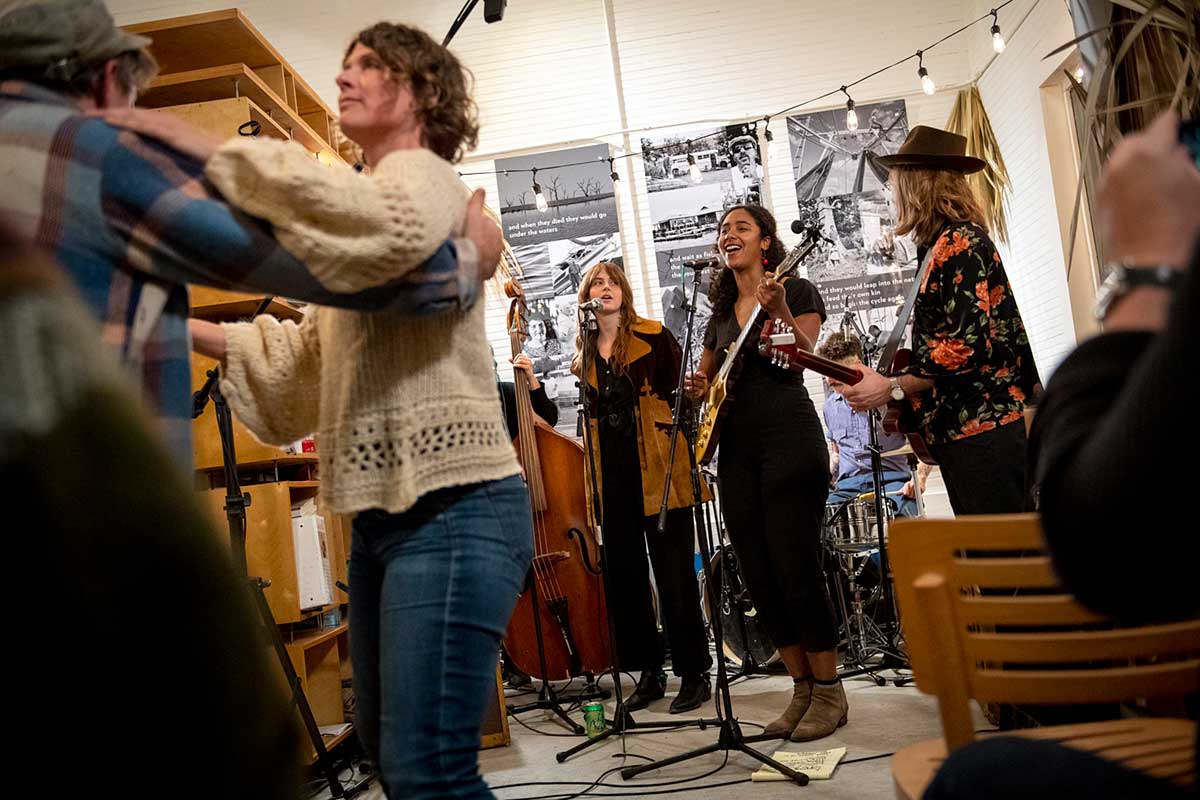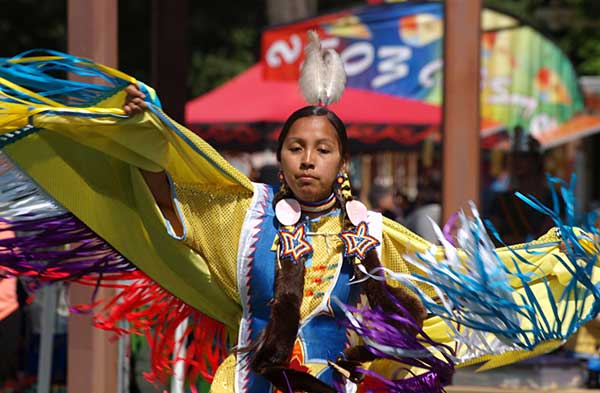

Across New Orleans, locals and visitors alike are posing an imperative question: how can we learn from New Orleans culture without taking advantage of it?
Within the School of Liberal Arts, faculty and staff support New Orleans culture bearers by teaching understandings of New Orleans’ roots. Through coursework, lectures by faculty and community members, and a wide variety of public programs, the school addresses how individuals can responsibly engage with the city’s history and culture rather than treating it as an inexhaustible natural resource to extract for pleasure or profit. Denise Frazier, a Latin Americanist, Tulane Liberal Arts alumna, and performance artist, is the Assistant Director of the New Orleans Center for the Gulf South (NOCGS), a center within Tulane’s School of Liberal Arts. Frazier and NOCGS Executive Director Rebecca Snedeker return to the question of responsible engagement often when developing their programs and events, which are designed with Tulane students, international and local scholars and artists, and New Orleans community members in mind. As Frazier explains, “Forging reciprocal partnerships, providing just compensation for culture bearers, and making space for uncensored truth-telling all help foster equitable relationships and create opportunities for presenters to shine.”
NOCGS operates under the belief that the more one understands where they are, the more they are able to participate in our democracy and collective destiny. Focusing primarily on the culture and environment of the Gulf South region stretching from Texas to Florida, NOCGS organizes public programs that highlight the cultural manifestations of this area by focusing on the inclusion of less commonly heard voices. For example, NOCGS co-hosts the concert series L’Union Creole with local nonprofits the Neighborhood Story Project and the Preservation Hall Foundation. Together, the three organizations have hosted family-friendly concerts by local musicians on Sunday evenings, a historic time for local musicians to gather and practice together. The evenings begin with an interview with each member of the band, which, as Frazier describes, “helps educate audiences about the person playing, and the roots of the instrument and music they’re playing.”
“Culture isn’t something that you do on the side,” says Frazier. “By encouraging attention not only to the historical and contemporary practices of this region, but to futuristic trends as well, NOCGS hopes to support our audience members’ abilities to understand why things are the way they are, so they can find a greater appreciation for the area’s rituals and cycles and how these relate to our geographies.” In March 2021 (postponed for a year), NOCGS will host the third iteration of the Annual Indigenous Symposium. The theme of the symposium is “Being Native Today: Indigenous Identities in the Gulf South,” and the program will focus on the cultural and ecological realities of Native American life in this region. Scholars, artists, and activists will explore Native identity and life today—how southeastern tribes relate identity to land and the federal government, and how racial exclusion and inclusion complicate stereotypical views of Indigenous communities. Sessions will explore issues such as how race-mixing within Indigenous communities has impacted who identifies as Native and which tribes receive federal recognition, as well as how federal recognition relates to questions surrounding funding, migration, and climate change. The final panel of each Indigenous Symposium offers a platform for Tulane students and faculty across several schools to present their research, prompting a university-wide reflection on the ethics of Tulane’s collaborations with tribes. “The symposium, a space for contemplation,” as Frazier describes, “is emblematic of the center’s programming and invites individuals to consider the region’s music, culinary and artistic traditions, inhabitants, archaeology, geology, and more.”
In another effort to support interdisciplinary learning, NOCGS often pairs individuals in the region together in conversation or through special programs. As Frazier explains, by examining subjects from various perspectives— a strategy that lies at the heart of a liberal arts education—we can learn so much more. Recognizing the erasure of women’s stories from musical, political, and civil rights histories, two years ago NOCGS launched Women in Movement, a dynamic public programming series that foregrounds the socio-political and cultural work of African-descended women in the Gulf South. With support from the Newcomb College Institute, Skau Art and Music Fund, and Nola4Women, NOCGS hosts one event each semester. The latest program in the series, “African American Women Affecting the Arts in New Orleans,” included a panel of five African-descended women who lead arts organizations, centers, and companies who met to discuss the nuanced work of supporting culture-bearers. Now in its second year, Women in Movement continues to take on different platforms, such as workshops on reproductive justice and maternal health to city outings on a party bus tracing the history of New Orleans bounce music. These engaging programs become a portal between Tulane University and New Orleans to reconsider women as cultural producers and creators, not to mention funders, logistical leaders, and activists.
NOCGS’s programs remind us that as New Orleans and the Gulf South are undergoing continual transformation, learning about the deep history of the region’s environment and culture allow us to engage with one another and our surroundings more responsibly. NOCGS continues to encourage Tulanians and community members alike to “de-program” what we think we know about any culture, and to offer immersive educational settings—virtual for now, of course—where we face dynamic realities together.
A New Minor in Native American Studies

The School of Liberal Arts’ new minor in Native American Studies offers students the opportunity to increase their knowledge of indigenous peoples of the Americas, their (pre)history, their lifeways, their languages, and the issues they face today. Researchers at Tulane are actively involved with Native American tribes of Louisiana, working with them on issues of language and culture revitalization, displacement due to coastal erosion, health concerns and services, and equity issues. Students will have opportunities to collaborate with Native communities, learning as they contribute to projects bolstering indigenous lifeways both in and outside the classroom.
There are many courses at Tulane that explore Native American culture, history, and languages, such as “Introduction to Native America,” “Native American Languages and Linguistics,” “North American Prehistory,” “Arts of Native North America,” and “Tunica: Louisiana’s Sleeping Language.” Through a structured introduction to Native Americans and cultures, Tulane students can gain an appreciation for the continuing contributions of these communities to the American story. For more information, visit https://liberalarts.tulane.edu/programs/native-american-studies.

